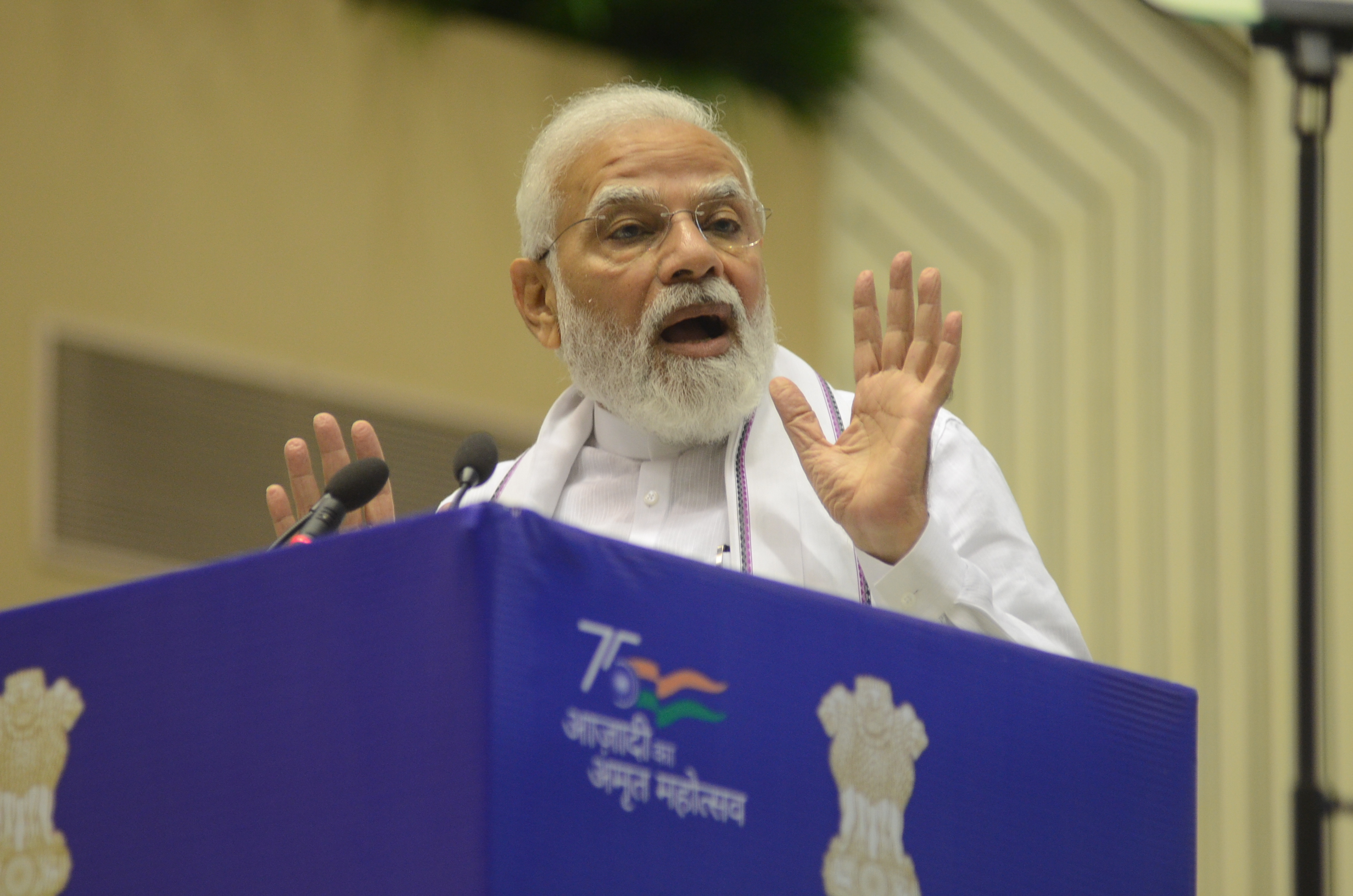The mediation muddle
Are recent amendments to the Commercial Courts Act a boon or a bane, asks Dr P Madhava Rao
Modi said the government was working hard to reduce delays in justice delivery as efforts were on to increase judicial strength and improving judicial infrastructure.
SNS | New Delhi | April 30, 2022 6:57 pm

Noting that there were about 3.5 lakh undertrials in jails in the country, mostly belonging to poor families, Prime Minister Narendra Modi made an appeal to chief ministers and chief justices of high courts to accord priority to their cases on the basis of humanitarian sensibility and law.
Advertisement
Speaking at the inaugural session of a joint conference of chief ministers and chief justices of high courts in New Delhi today, the PM pointed out that in every district there was a committee headed by a district judge to review their cases and wherever possible, such prisoners might be released on bail.
Advertisement
Chief Justice of India Justice N V Ramana and Justice U U Lalit of the Supreme Court, Union Ministers Kiren Rijiju and S P Singh Baghel, Supreme Court judges and chief justices of high courts were among others were present on the occasion.
Describing mediation as an important tool for the settlement of pending cases in the courts, especially at the local level, the Modi said, ”There is a thousands of years of tradition of settlement of disputes through mediation in our society. Mutual consent and mutual participation, in its own way, is a distinctly human concept of justice,” he said.
With this model in mind, he said his government has introduced the Mediation Bill in Parliament as umbrella legislation. “With our rich legal expertise, we can become a global leader in the field of the solution by mediation. We can present a model to the whole world”, he said.
Modi said the government was working hard to reduce delays in justice delivery and efforts were also on for increasing judicial strength and improving judicial infrastructure.
Information and Communication Technology (ICT) has been deployed for case management and efforts were under way to fill the vacancies at various levels of the judiciary, he said.
The PM reiterated his vision to use technology in governance in the context of judicial work. He said the government considered the possibilities of technology in the judicial system as an essential part of the ”Digital India” mission. He appealed to the chief ministers and chief justices of high courts to take this forward.
Citing the success of digital transactions which were becoming common in small towns and even in villages, he said the e-courts project was being implemented today in a mission mode.
The PM said of all the digital transactions that took place in the world last year, 40 per cent were in India. Proceeding further on the theme of the use of technology, he noted that nowadays, subjects like blockchains, electronic discovery, cybersecurity, robotics, AI and bioethics were being taught in law universities in many countries. “It is our responsibility that in our country also legal education should be according to these international standards”, he said.
The PM said it was important to promote local languages in the courts so that people of the country could feel connected with the judicial process and their faith in the same increased. He said that people’s right to the judicial process would be strengthened by this. He also stated that local languages were being promoted in technical education also.
“In our country, while the role of the judiciary is that of the guardian of the constitution, the legislature represents the aspirations of the citizens. I believe that this confluence and balance of these two branches of the Constitution will prepare the roadmap for an effective and time-bound judicial system in the country.”
He said that 75 years of independence have continuously clarified the roles and responsibilities of both the judiciary and the executive. Wherever it was necessary, this relation has evolved continuously to give direction to the country, he said.
The PM also talked about the complexities and obsolescence in the law. He informed that in 2015, the government identified 1800 laws which had become irrelevant and 1450 laws have already been repealed.
Noting that only 75 such laws have been abrogated by the states, he said, “I would urge all the chief ministers that for the rights of the citizens of their states and for their ease of living, definitely steps should be taken in this direction.”
Advertisement
Are recent amendments to the Commercial Courts Act a boon or a bane, asks Dr P Madhava Rao
Staying the Delhi High Court order, a bench comprising Justice Hrishikesh Roy and Justice SVN Bhati on Monday (July 29) issued notice to master chef Kunal Kapur seeking his response to his estranged wife’s plea against the High Court decree.
The Bharatiya Nyaya Sanhita, Bharatiya Nagarik Suraksha Sanhita, and the Bharatiya Sakshya Adhiniyam aim to empower citizen to replace the criminal laws continued to date from the British era.
Advertisement
